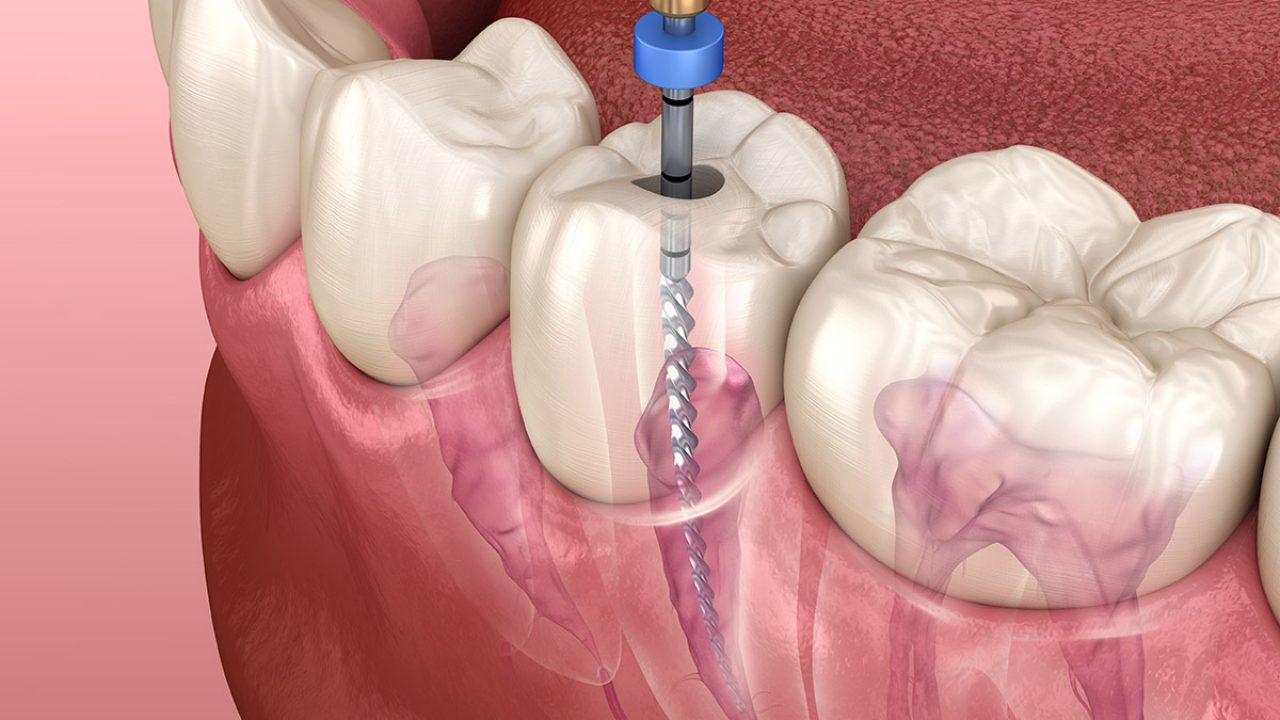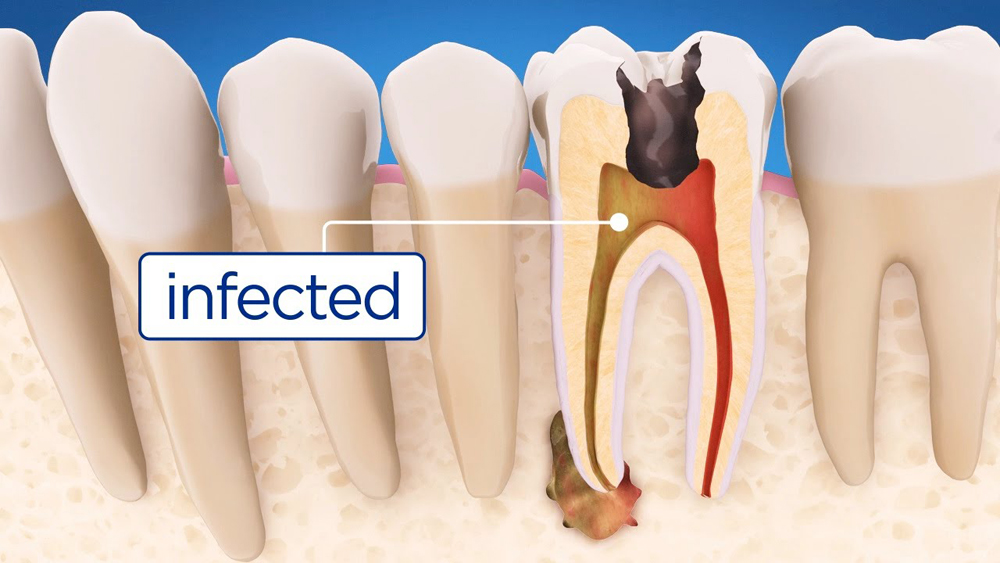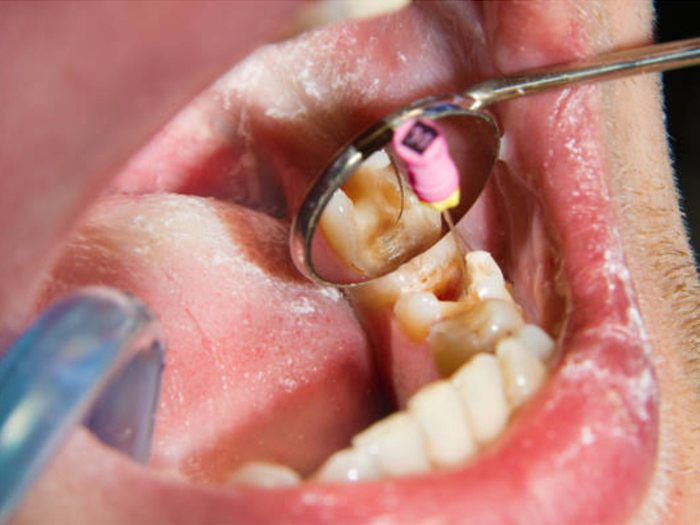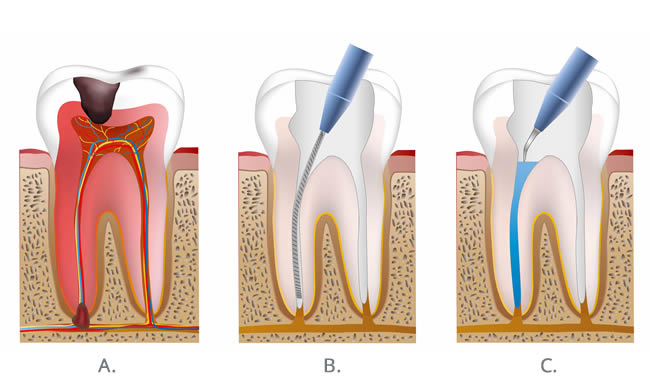






A root canal is a dental procedure involving the removal of the soft center of the tooth, the pulp. The pulp is made up of nerves, connective tissue, and blood vessels that help the tooth grow.
A root canal is performed when the soft inner part of a tooth, known as the pulp, is injured or becomes inflamed or infected.
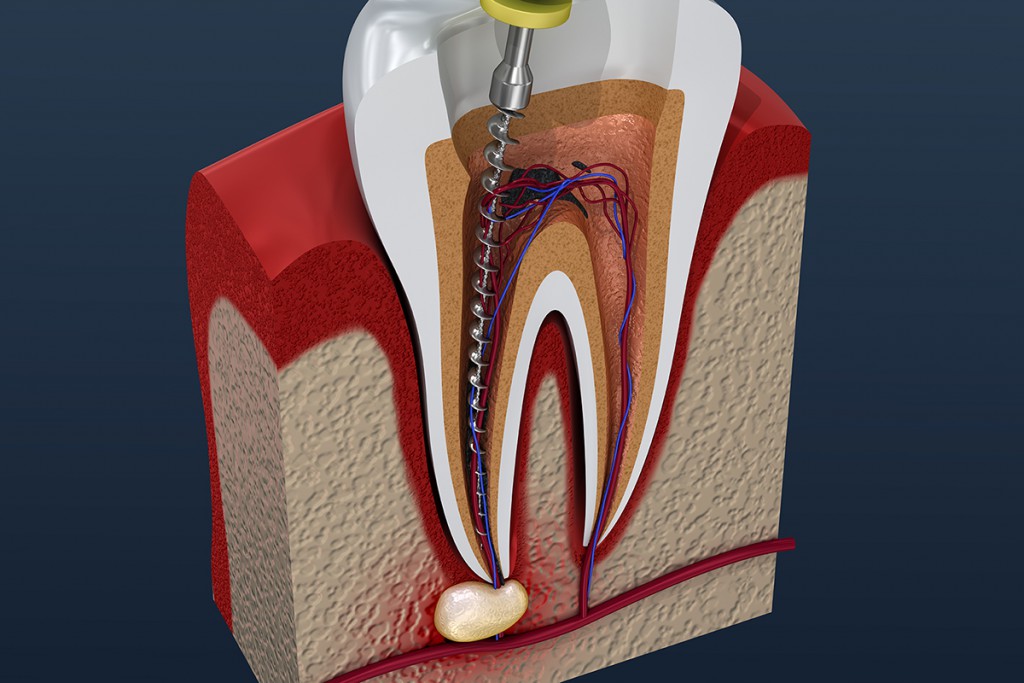

There’s no need to be worried if your dentist or endodontist prescribes a root canal procedure to treat a damaged or diseased tooth. Millions of teeth are treated and saved this way each year, relieving pain and making teeth healthy again.
Inside your tooth, beneath the white enamel and a hard layer called dentin, is a soft tissue called pulp. This tissue contains blood vessels, nerves and connective tissue, which help grow the root of your tooth during its development. A fully developed tooth can survive without the pulp because the tooth continues to be nourished by the tissues surrounding it.
A modern root canal treatment is nothing like those old sayings! It’s very similar to a
routine filling and can usually be completed in one or two appointments, depending on the condition of your tooth and your personal circumstances. Getting a root canal is relatively painless and extremely effective. You’ll be back to smiling, biting and chewing with ease in no time.
![]() Efficient chewing
Efficient chewing
![]() Normal biting force and sensation
Normal biting force and sensation
![]() Natural appearance
Natural appearance
![]() Protects other teeth from excessive wear or strain
Protects other teeth from excessive wear or strain
Since patients are given anesthesia, a root canal isn’t more painful than a regular dental procedure, such as a filling or getting a wisdom tooth removed. However, a root canal is generally a bit sore or numb after the procedure, and can even cause mild discomfort for a few days.
Root canals are needed for a cracked tooth from injury or genetics, a deep cavity, or issues from a previous filling. Patients generally need a root canal when they notice their teeth are sensitive, particularly to hot and cold sensations.
![]() Severe pain while chewing or biting
Severe pain while chewing or biting
![]() Pimples on the gums
Pimples on the gums
![]() A chipped or cracked tooth
A chipped or cracked tooth
![]() Lingering sensitivity to hot or cold, even after the sensation has been removed
Lingering sensitivity to hot or cold, even after the sensation has been removed
![]() Swollen or tender gums
Swollen or tender gums
![]() Deep decay or darkening of the gums
Deep decay or darkening of the gums
